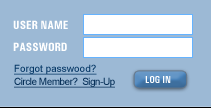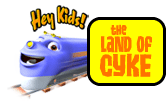 |
 |
 |
ADHD - Treatment
Every family wants to determine what treatment will be most effective for their child. This question needs to be answered by each family in consultation with their health care professional. To help families make this important decision, the National Institute of Mental Health (NIMH) has funded many studies of treatments for ADHD and has conducted the most intensive study ever undertaken for evaluating the treatment of this disorder. This study is known as the Multimodal Treatment Study of Children with Attention Deficit Hyperactivity Disorder (MTA).12 The NIMH is now conducting a clinical trial for younger children ages 3 to 5.5 years (Treatment of ADHD in Preschool-Age Children).
The Multimodal Treatment Study of Children with Attention Deficit Hyperactivity Disorder.
The MTA study included 579 (95-98 at each of 6 treatment sites) elementary school boys and girls with ADHD, who were randomly assigned to one of four treatment programs: (1) medication management alone; (2) behavioral treatment alone; (3) a combination of both; or (4) routine community care. In each of the study sites, three groups were treated for the first 14 months in a specified protocol and the fourth group was referred for community treatment of the parents' choosing. All of the children were reassessed regularly throughout the study period. An essential part of the program was the cooperation of the schools, including principals and teachers. Both teachers and parents rated the children on hyperactivity, impulsivity, and inattention, and symptoms of anxiety and depression, as well as social skills.
The children in two groups (medication management alone and the combination treatment) were seen monthly for one-half hour at each medication visit. During the treatment visits, the prescribing physician spoke with the parent, met with the child, and sought to determine any concerns that the family might have regarding the medication or the child's ADHD-related difficulties. The physicians, in addition, sought input from the teachers on a monthly basis. The physicians in the medication-only group did not provide behavioral therapy but did advise the parents when necessary concerning any problems the child might have.
In the behavior treatment-only group, families met up to 35 times with a behavior therapist, mostly in group sessions. These therapists also made repeated visits to schools to consult with children's teachers and to supervise a special aide assigned to each child in the group. In addition, children attended a special 8-week summer treatment program where they worked on academic, social, and sports skills, and where intensive behavioral therapy was delivered to assist children in improving their behavior.
Children in the combined therapy group received both treatments, that is, all the same assistance that the medication-only received, as well as all of the behavior therapy treatments.
In routine community care, the children saw the community-treatment doctor of their parents' choice one to two times per year for short periods of time. Also, the community-treatment doctor did not have any interaction with the teachers.
The results of the study indicated that long-term combination treatments and the medication-management alone were superior to intensive behavioral treatment and routine community treatment. And in some areas—anxiety, academic performance, oppositionality, parent-child relations, and social skills—the combined treatment was usually superior. Another advantage of combined treatment was that children could be successfully treated with lower doses of medicine, compared with the medication-only group.
Treatment of Attention Deficit Hyperactivity Disorder in Preschool-Age Children (PATS).
Because many children in the preschool years are diagnosed with ADHD and are given medication, it is important to know the safety and efficacy of such treatment. The NIMH is sponsoring an ongoing multi-site study, "Preschool ADHD Treatment Study" (PATS). It is the first major effort to examine the safety and efficacy of a stimulant, methylphenidate, for ADHD in this age group. The PATS study uses a randomized, placebo-controlled, double-blind design. Children ages 3 to 5 who have severe and persistent symptoms of ADHD that impair their functioning are eligible for this study. To avoid using medications at such an early age, all children who enter the study are first treated with behavioral therapy. Only children who do not show sufficient improvement with behavior therapy are considered for the medication part of the study. The study is being conducted at New York State Psychiatric Institute, Duke University, Johns Hopkins University, New York University, the University of California at Los Angeles, and the University of California at Irvine. Enrollment in the study will total 165 children.
Which Treatment Should My Child Have?
For children with ADHD, no single treatment is the answer for every child. A child may sometimes have undesirable side effects to a medication that would make that particular treatment unacceptable. And if a child with ADHD also has anxiety or depression, a treatment combining medication and behavioral therapy might be best. Each child's needs and personal history must be carefully considered.
(NIMH)
ADHD Topics:
What Is It, Symptoms, Diagnosis, Who Diagnoses it, Causes, Related Conditions, Treatment, Therapy, Medication, School, Teenagers, and Adults.


